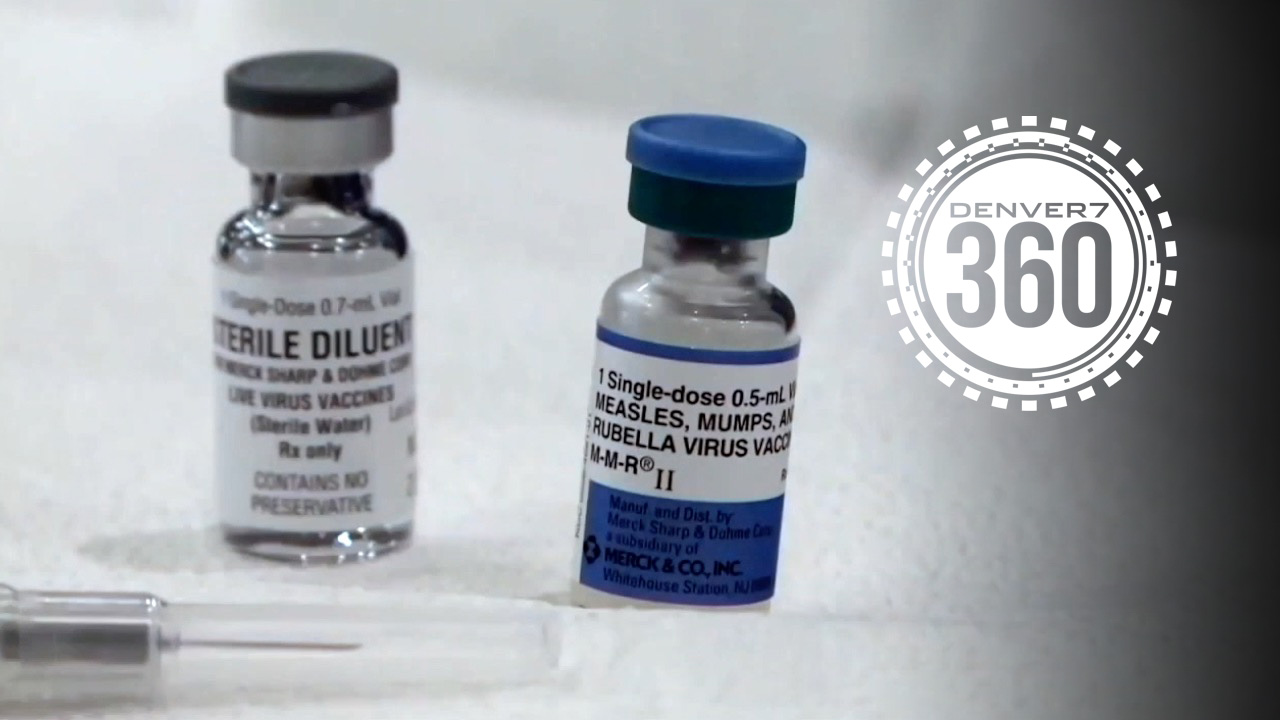DENVER — Colorado is experiencing the worst measles year in three decades after five additional cases of the highly contagious virus were confirmed in Mesa County over the Labor Day weekend.
The Colorado Department of Public Health and Environment (CDPHE) on Saturday announced additional exposures of the preventable disease but made no mention of the additional cases in the county. It was only after Denver7 looked through the state’s measles case information webpage that we found the state had added the additional cases to its tally, bringing the total so far this year to 27.
The last time Colorado saw that many cases of the virus was in 1995, when the state reported 26 for the whole year to the U.S. Centers for Disease Control and Prevention (CDC). On average, Colorado sees between zero and two cases each year.
State health officials said Saturday people could have been exposed at a pizza joint in Fruita; and at gas stations, a music store, and a hospital in Grand Junction between Friday, Aug. 22 and Wednesday, Aug. 27.
Anyone who was in the following locations at the listed date and time may have been exposed and should monitor for symptoms of measles for the next two week weeks:

What to do if you believe you were exposed
Anyone who believes they may have been exposed — especially those who have not been vaccinated with the MMR vaccine — should monitor for symptoms for 21 days and avoid public gatherings or high-risk settings, health officials said in the news release.
In this latest exposure, state health officials said those who were potentially exposed may develop symptoms between Aug. 31 and Sept. 5.
Symptoms to watch out for include anything from a fever, a cough, a runny nose, and red, watery eyes that develop into a rash that starts on the face and then spreads to the rest of the body about three to five days after symptoms first start. A person with measles is contagious four days before and four days after the rash appears.
While most people recover within two or three weeks after contracting the virus, unvaccinated people run the risk of complications from the disease, including ear infections, seizures, pneumonia, immune amnesia, brain damage and ultimately, death.
Measles only spreads from people who show symptoms; it does not spread from people who aren’t feeling sick, state health officials said.
- Denver7 has been closely following confirmed cases of measles in Colorado amid a multi-state outbreak of the virus in the U.S. this year. Explore the timeline map below to see more on where cases have so far popped up.
Unvaccinated people exposed to the virus can get the MMR vaccine 72 hours after exposure (but before symptoms are present) to prevent an infection, according to health officials. Immunoglobulin (IG), if administered within six days of exposure, may also be used in some circumstances, they added.
While the two-dose series of the MMR vaccine has a 97% efficacy rate against infection, about 3 in every 100 people can still get infected if exposed to the virus, according to the CDC. Vaccinated individuals will usually develop milder symptoms and are less likely to spread it to others, according to state health officials.
People who got vaccinated against measles before 1968 should talk to their health care provider about possibly getting a booster as the vaccine used before that year wasn't as effective.
CDPHE changing how it reports measles cases to the public
A state health official told Denver7 they released no information about the five new cases in Mesa County since three of those were quarantined household contacts of the original two cases reported by Denver7 last month, while the other two were secondary cases linked to previously announced exposure locations in the area.
“The newly reported cases are connected to known exposures. We have not identified unexplained community spread resulting from the initial cases reported in mid-August,” a CDPHE spokesperson said in an email to Denver7 Tuesday.
Going forward, details of new measles cases such as the person’s age, travel, and vaccination status will not be included in further exposure alerts, the spokesperson said, as “exposure information is the most important public health detail” for Coloradans to be aware of.
- Denver7 took an in-depth look at measles vaccine hesitancy through the eyes of infection experts, a holistic pediatrician, and the psychology behind the politics of it all. You can watch that report in the video player below:
News releases with more information about additional cases will be reserved for more “significant events,” such as large or multi-county outbreaks, further evidence of community spread, or a shift in how the CDPHE reports exposures, the spokesperson added.
"The alerts allow Coloradans to get the information they need most quickly, where exposures have occurred, and what action to take," they said.
So far this year, Colorado has confirmed cases of the virus in Adams (4), Arapahoe (5), Archuleta (1), Boulder (1), Denver (4), El Paso (4), Mesa (7), and Pueblo (1) counties. Most have been in unvaccinated individuals.





Denver7 is committed to making a difference in our community by standing up for what's right, listening, lending a helping hand and following through on promises. See that work in action, in the videos above.




